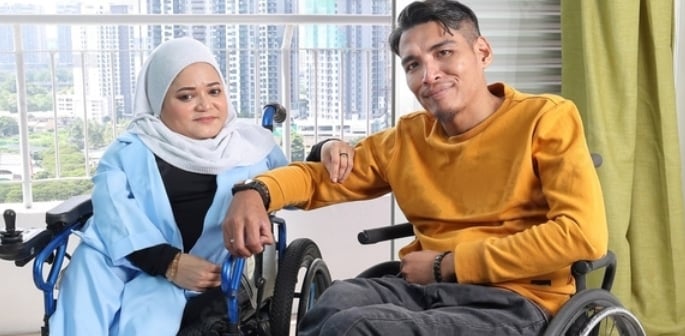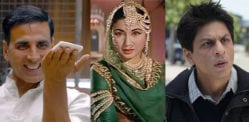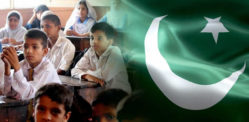"It’s a comment that still haunts me"
In the world of dating struggles, some people often find themselves with unresolved issues and unanswered questions.
In the South Asian community, stigmas are rife and people can be obliged to fulfil certain expectations by society.
These issues can be problematic but they can be harder for Desi people with physical disabilities.
We are in an era where we are continuously seeking to achieve equality and empowerment.
However, that’s not to say that disabled people do not still come across stigmas when navigating their dating journey.
DESIblitz invites you to join us on an important journey, where we present some of the dating struggles faced by disabled Desi people.
Assumptions
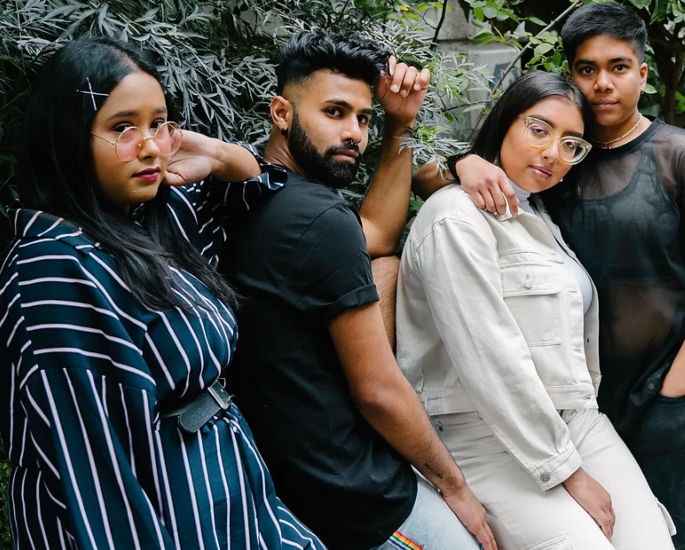
Among the community of disabled Desi people, the assumptions made about both their medical condition and their capabilities are a cause for concern and can prove to be a hurdle when it comes to dating.
Vice spoke to Sweta Mantrii, a comedian with spina bifida which requires her to use crutches to walk.
Sweta details the assumption that disabled people will only find true ease in marrying someone who also has a disability. She explains:
“As a person with a disability who’s lived in India all her life, I’ve always been told that dating another person with a disability would be easier.
“We’re conditioned to believe that if we have some disability, we should only get married to someone who also has a disability.
“It’s a narrow-minded view but I’m still constantly told that people who are in similar situations will be able to understand each other better.”
Adding to this notion is Noor Pervez, an autistic person who also suffers from physical disability, who recollects an occasion when she felt like a burden to her former partner:
“She had a hard time physically pushing me and navigating the city curbs.”
“I gave her an out several times (we were in a big group, so I asked if she was sure she didn’t want someone to take over.
“But she insisted on continuing because it was a way to prove that she cared for me and that my disability wasn’t an obstacle.
“I thought it was romantic at first until I saw her in person again when I had my motorised scooter and she cheered how great it was that she ‘wouldn’t have to push me anymore’.
“As someone who takes pride in my disability, I want my partner to as well.”
Patriarchal Norms & Asexuality
Sweta also believes that India’s patriarchal society intertwines with negative assumptions:
“I definitely think it’s harder especially in India because of all the stigma that surrounds us.
“Our country is patriarchal and society continues to believe that women belong in the kitchen.
“So, they think that my disability is a disadvantage since instead of being able to help around the house, they assume I am the one who constantly needs help.
“Women with disabilities are not viewed as eligible for marriage with able-bodied men.
“We are often seen as undesirable because people like to assume that we can’t contribute physically in a way an able-bodied woman can.
“Too much importance is given to the way you look as opposed to your emotional contribution to a marriage or family.”
She also delves into the stereotypical assumption that all disabled people must be asexual:
“People also like to assume that we are asexual or obviously don’t get any.”
“They kind of forget that there’s more to sexual pleasure than penetration.
“A guy once asked me if I wanted to f*ck, and when I turned him down, his reaction was, ‘Oh I assumed you must not be getting enough action, so I offered’.
“It’s these assumptions that are the problem.
“Instead of assuming or being afraid to approach a person with a disability, everyone should learn to ask before they offer.”
Sweta’s candidness deserves applause as she talks about the struggles disabled people can face.
‘Inspiration Porn’
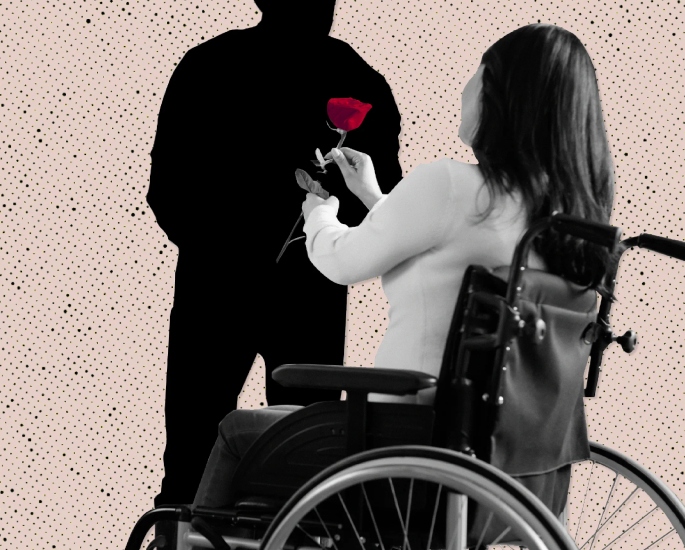
Those living with a disability can find themselves being lauded for doing things that are second nature to able-bodied people.
Sweta brands this attitude as “inspiration porn”. She expresses:
“Others would engage in ‘inspiration porn’, which is when an able-bodied person starts glorifying a person with a disability for doing the same things they would do, for their own sense of gratification.
“It’s the worst according to me, because I have no interest in being this larger-than-life inspirational figure just because I need crutches to walk.
“I finally had enough of the awkwardness and mentioned my disability in my bio and display picture, but with a slight twist.
“I wrote, ‘I am this way because my parents didn’t do it properly’.
“Men found that hilarious and intriguing and the right swipes kept coming.
“Unfortunately, once again, it was either because these men wanted to indulge in ‘inspiration porn’ or simply get to know me non-romantically, and almost always ended up friend-zoning me.”
These words highlight that a key aspect in overcoming these dating struggles is the necessity to treat everyone equally.
Dowry
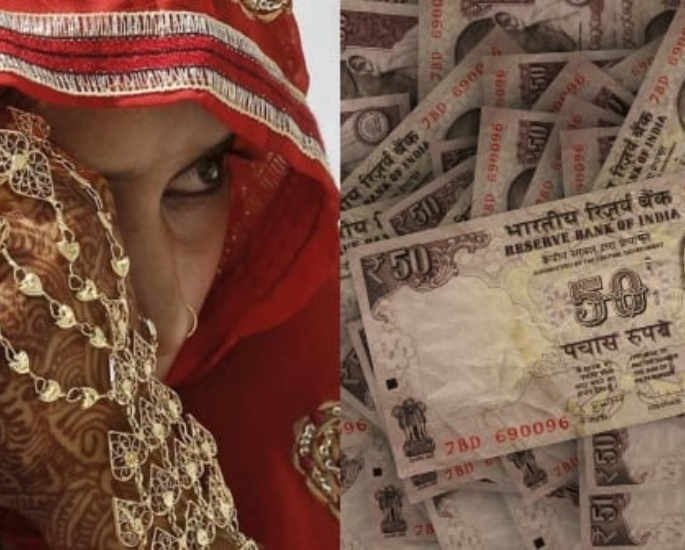
In a report by the Hindustan Times, they shed light on Shweta Mahawar.
Diagnosed with polio as a child, Shweta uses a wheelchair for support.
She experienced a series of challenges while on matrimony sites.
Dowry is the practice commonly seen in South Asian marriages, wherein usually the groom’s family places demands on the bride for the wedding to go ahead.
These can range from financial to materialistic demands.
Shweta divulges into the dowry demands she was met with on the matrimony sites:
“My parents did not have a lot of savings because they had to spend a good chunk of their income on my medical expenses.
“So meeting those dowry demands was out of the question.”
Fortunately, Shweta met her husband – Alok Kumar – through the defunct app Inclov, which shut its systems in 2019.
Dowry is something that is frequently frowned upon but it is still massively prevalent.
Sometimes, families without disabled members struggle with this. So one can imagine the difficulties of people with a disability.
Lack of Infrastructure
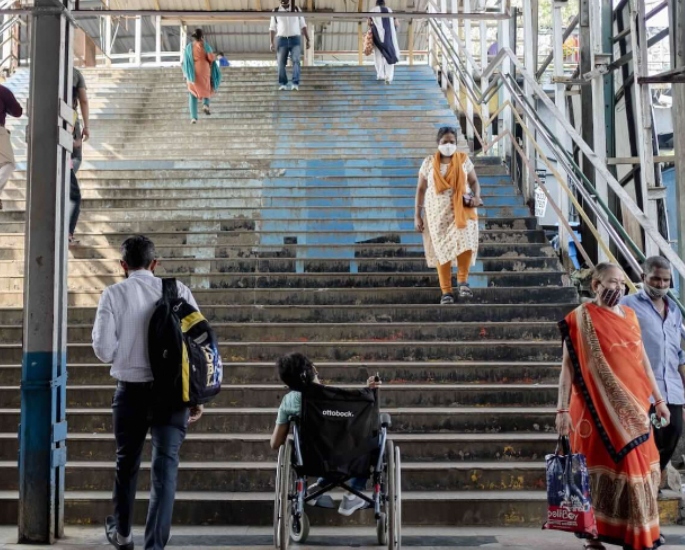
In South Asian countries that are still developing their infrastructure, the lack of accessibility for disabled residents is a major problem.
Physical activity such as holding hands and carrying one another is common in romantic relationships.
However, self-care is paramount for everyone.
In places where there is less support regarding mobility, this is an obstacle for disabled people, who wish to appear independent.
Sweta Mantrii opens up about the strain this can cause:
“I think a major reason why people aren’t sensitised enough to this issue is because of a lack of adequate infrastructure for people with disabilities in [India].
“If the infrastructure was slightly more inclusive then there wouldn’t be so much stigma.”
“Because you would see people with disabilities around and you’d be more exposed to seeing them around.
“If there’s a flight of steps without a railing, I would obviously take longer to climb it, so I will appear to be struggling, while good infrastructure would enable you to think I am independent.
“When you create a hierarchy of a helper and helpee, you forget the concept of codependency.
“But despite it all, I’m still standing.”
The UK vs India
Akshay*, a British Indian living in the UK, has cerebral palsy which affects his mobility.
He says that if he ever gets married to a girl living in India, the lack of infrastructure would be an issue for him:
“I live in the UK and I am massively independent – I work, cook and drive. Also, I go to the gym and I do my own shopping.
“I have family in India and have been there many times, but that has always been with support.
“The roads are very unsafe in India. Drivers don’t have as much courtesy towards pedestrians over there as they do in the UK.
“I therefore need considerable assistance when moving around in India – something which I don’t require when I’m home.
“It’s almost like I’m two different people. Independent in the UK, but constantly need help when I go and visit India.
“So I think if I ever marry someone from India, she would need to come to the UK.
“Because I wouldn’t be able to be my natural, independent self if I was in India with her.
“I know that could sound selfish, but the better infrastructure here in the UK would mean that I’d be a better partner.”
Satyamev Jayate (2012)
In 2012, Aamir Khan’s television show Satyamev Jayate explored how the problems in India’s infrastructure impact disabled people.
Within the episode, a video clip plays in which disabled people attempt to climb ramps.
They also try to enter government buildings and board buses.
The difficulties are shown when they are trying to accomplish such tasks.
Aamir then questions: “How will disabled people live a regular life?”
Shani Dhanda
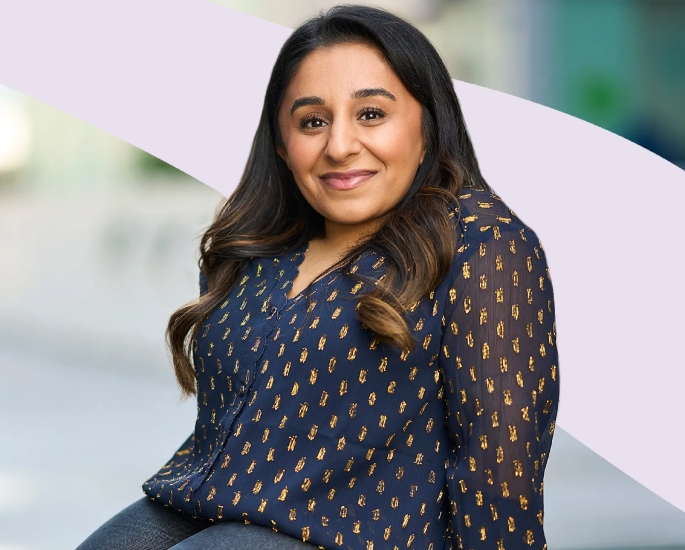
In 2019, Shani Dhanda, a Project Manager based in London, revealed the attitudes she has faced as a disabled South Asian.
She was born with brittle bone disease, and as a result, has a height of 3’10.
Shedding light on her disability, Shani explains:
“Managing my condition is like a full-time job in itself because I live in a world that isn’t designed for me.
“On a day-to-day basis, it means I can’t use public transport.
“I can’t walk into a shop, buy something and wear it straight away because I have to get it tailored.
“Food shopping is a nightmare and I can’t carry a lot or walk long distances.
“However, I’ve found creative solutions to these problems. I drive an adapted car.
“I buy tops and wear them as dresses and I own lots of stools and stepladders.”
‘Taboo’ Attitudes
Shani continued to explain the cultural aspect of disabilities and how it’s difficult to manage within South Asian communities:
“It can’t have been easy for my parents though.
“Disability is not always well understood or received in the South Asian community.”
Detailing the ignorance she faces, Shani continues:
“Someone once said to me ‘You’re like this because you did something bad in your past life’.
“My first thought was, ‘WTF? Now I’m supposed to feel guilty about something I may have done in a past life?’
“And a few years ago, as I was on my way to work, a random elderly Asian man said to me, ‘It’s such a shame, you’re never going to get married and you’re never going to have kids’.
“It’s a comment that still haunts me because marriage is something every Asian woman is made aware of, regardless of whether you actually want to get married or not.”
However, Shani admirably chose to accept herself. It is this positive attitude that led her to be recognised for her efforts. She concludes:
“I have an underlying impulse to create change for others.
“I was named as one of the most influential disabled people in Britain in the Shaw Trust Power List 2018.
“If I can’t do something, I just find a different way of doing it. My worst fear is being alive and not living.”
Inclusivity in Dating Apps
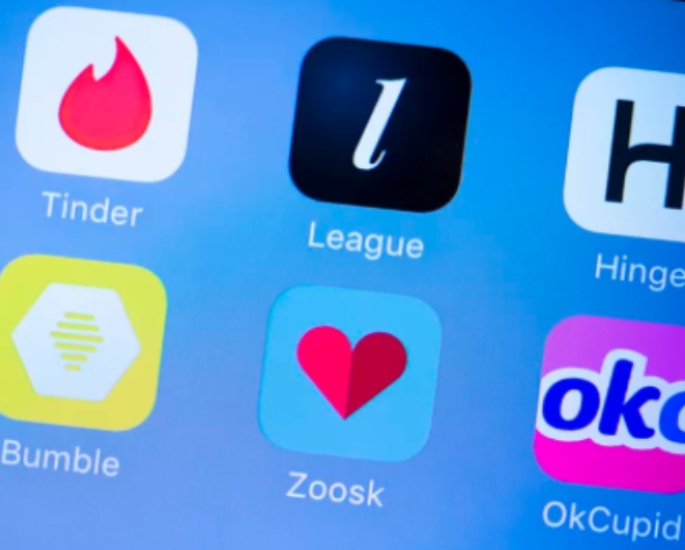
When seeking out a potential partner or companion, one of the highest priorities for disabled people is acceptance and inclusivity.
The hope is that they will not be treated any differently from able-bodied people.
For anyone looking to begin a romantic connection or a relationship, dating apps are a key source for beginning this journey.
However, not many apps are inclusive towards disabled users. Rights activist Nipun Malhotra questions this lack of inclusivity:
“Just like questions about sexual orientation, hobbies and interests, dating apps should include questions on whether a person is open to dating people with disabilities or not.
“Many apps require users to imitate hand gestures, which is not possible for a person with a locomotor disability like me.”
According to Hindustan Times, Minal Sethi launched her app, MatchAble in September 2022.
The app’s objective is to provide disabled users with an opportunity and a platform for their dating process. Minal says:
“Through the app, we want to enable genuine connections and make it easier for people with disabilities to find people who understand them.”
This effort is highly commendable and undeniably a step in the right direction.
However, the general lack of inclusivity is still an issue among dating apps and dating struggles.
Next Steps?
There is no doubt that the South Asian community is improving.
Sukhjeen Kaur, who suffers from rheumatoid arthritis, is the founder and CEO of Chronically Brown, a platform that celebrates being brown and disabled.
Kaur spoke about beginning the #Desiabled campaign which aims to reduce stigmas surrounding disability among South Asians:
“We have had over 500+ posts across multiple social media channels.
“It has also resulted in us being nominated for the National Diversity award 2021.”
“Our hope for this is to make digital activism easier for disabled South Asians, and encourage disability organisations to include more South Asians in their panellist events, workshops and more!”
However, there is still a long way to go. There is an undeniable struggle for disabled people wanting to forge new relationships.
Dating struggles are inevitable for all people, regardless of their condition.
However, Desi disabled people can face different problems that many overlook.
The stigmas, assumptions and surroundings of the health conditions are problematic and need urgent consideration.
As we continue to advocate for inclusivity, equality and harmony, the realisation of such dating struggles is essential.




















































